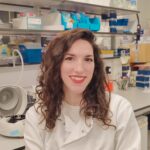Link to Pubmed [PMID] – 37735598
Link to DOI – 10.1038/s41556-023-01234-5
Nat Cell Biol 2023 Oct; 25(10): 1426-1438
Dedifferentiation is the process by which terminally differentiated cells acquire the properties of stem cells. During mouse skin wound healing, the differentiated Gata6-lineage positive cells of the sebaceous duct are able to dedifferentiate. Here we have integrated lineage tracing and single-cell mRNA sequencing to uncover the underlying mechanism. Gata6-lineage positive and negative epidermal stem cells in wounds are transcriptionally indistinguishable. Furthermore, in contrast to reprogramming of induced pluripotent stem cells, the same genes are expressed in the epidermal dedifferentiation and differentiation trajectories, indicating that dedifferentiation does not involve adoption of a new cell state. We demonstrate that dedifferentiation is not only induced by wounding, but also by retinoic acid treatment or mechanical expansion of the epidermis. In all three cases, dedifferentiation is dependent on the master transcription factor c-Myc. Mechanotransduction and actin-cytoskeleton remodelling are key features of dedifferentiation. Our study elucidates the molecular basis of epidermal dedifferentiation, which may be generally applicable to adult tissues.
